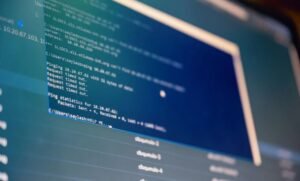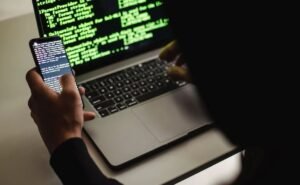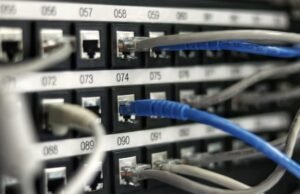Can AI Write Songs?
Artificial Intelligence (AI) has made its mark in various industries, from healthcare to finance. But can it also compose music? It’s a question that has sparked curiosity and debate among music enthusiasts and technologists alike.
Key Takeaways:
- AI has the capability to compose songs, but it is still a work in progress.
- Machine learning algorithms enable AI to analyze vast amounts of music data and create unique compositions.
- AI-written songs are often catchy, but lack the depth and emotion of human-created music.
AI systems have been trained on extensive music datasets, allowing them to study patterns, chord progressions, and melodies. By leveraging machine learning algorithms, these systems can analyze and understand music at an intricate level. This technology has led to the development of AI music composition tools that can generate original songs with minimal human intervention.
*AI-written songs are often catchy and exhibit impressive technical abilities, but they lack the depth and emotion that human artists infuse into their compositions.*
One interesting aspect of AI-generated music is its ability to mimic the style of various artists or genres. By training the AI models on specific musical styles, it can produce songs that closely resemble the works of renowned musicians. However, this raises ethical questions surrounding plagiarism and the boundaries of creativity.
While AI-written songs may lack the soul of human-created music, they can still be used as valuable tools for musicians. AI algorithms can help musicians explore new melodies, experiment with harmonies, and even generate ideas for lyrics. Artists can utilize AI-generated music as a starting point and add their personal touch to create unique compositions.
The Rise of AI in Music Production
AI is not limited to just songwriting; it has also found applications in other areas of music production. For example, AI algorithms can analyze large audio databases to improve sound quality and identify anomalies in recordings. Additionally, AI-powered virtual instruments can replicate the sound of various musical instruments, providing musicians with a vast array of sounds to work with.
*AI in music production has opened up new possibilities for musicians, enabling them to experiment and innovate with their music production process.*
AI in the Music Industry: Challenges and Opportunities
| Challenges | Opportunities |
|---|---|
| 1. Ethical concerns surrounding plagiarism and originality. | 1. AI as a valuable tool for music creation and exploration. |
| 2. Lack of emotional depth in AI-generated music. | 2. AI-generated music as a source of inspiration for human artists. |
| 3. Integrating AI into the creative process without compromising artistic expression. | 3. AI’s potential to revolutionize music production and sound quality. |
Despite the progress made in AI music composition, challenges still persist. There is an ongoing debate about the ethical implications of AI-generated music, particularly in terms of copyright infringement and artistic originality. Additionally, AI struggles to replicate the emotional depth and nuanced expression that human artists bring to their compositions.
*While AI can never replace the unique creativity and emotional depth of human artists, it can enhance the music creation process and serve as a valuable tool for musicians.*
The Future of AI in Songwriting
As technology continues to advance, the potential for AI in songwriting and music production is immense. While AI-written songs may not possess the same emotional connection as human-created music, they can still offer valuable assistance and inspiration to musicians. With further development and refinement, AI systems could become essential collaborators in the creative process, helping artists push the boundaries of music.
The journey towards AI-generated music is still ongoing, and it remains to be seen how it will evolve in the future. Musicians and technologists must tread carefully to strike the right balance between human artistry and technological innovation, ensuring that AI complements rather than replaces the essence of music.

Common Misconceptions
Misconception 1: AI cannot write songs that evoke emotions
One common misconception about AI songwriting is that it cannot create music that evokes emotions like humans. However, AI has proven itself capable of creating songs that can tug at the heartstrings and elicit powerful emotions.
- AI-generated songs can incorporate elements such as melody, lyrics, and chord progressions that resonate with listeners emotionally.
- AI algorithms can analyze vast amounts of existing emotional musical data to learn and replicate emotional cues effectively.
- Many listeners have reported feeling deeply moved by AI-composed songs, challenging the notion that only human composers can evoke emotions.
Misconception 2: AI-written songs lack creativity and originality
Another common misconception is that AI-written songs lack creativity and originality. However, AI models are capable of generating highly creative and original compositions that rival those created by human musicians.
- AI algorithms can generate unique and innovative melodies, harmonies, and song structures that push the boundaries of traditional musical norms.
- By analyzing vast music databases, AI can combine and transform existing musical styles and elements to create something entirely new and unique.
- Many AI-driven compositions have surprised both critics and listeners with their fresh and innovative approaches to music creation.
Misconception 3: AI removes the need for human involvement
Some believe that AI in songwriting eliminates the need for human involvement in the creative process. However, the reality is that human collaboration is still crucial in order to produce high-quality and meaningful music.
- Human musicians play a vital role in fine-tuning AI-generated compositions, injecting personal style and emotions into the music.
- AI can be seen as a tool to assist human composers, helping them explore new possibilities and overcome creative blocks.
- Human input is essential for selecting and curating the output of AI algorithms, ensuring that the final composition aligns with artistic intentions.
Misconception 4: AI-written songs lack the depth and complexity of human compositions
Many people believe that AI-written songs lack depth and complexity, considering them mere imitations of human compositions. However, AI can generate compositions with intricate layers and depth comparable to those of human-created music.
- AI algorithms can analyze and understand complex musical structures, enabling them to generate multi-layered compositions.
- Artificial intelligence can utilize advanced techniques, such as deep neural networks, to mimic the nuanced and intricate elements of human compositions.
- AI models are capable of combining various musical elements and genres to create complex and sophisticated compositions.
Misconception 5: AI will replace human musicians
Another common misconception surrounding AI songwriting is that it will replace human musicians altogether. However, the role of AI in music creation is better viewed as a collaboration rather than a replacement.
- AI technology enables human musicians to explore new creative territories and expand their artistic horizons.
- AI-generated compositions can serve as a starting point for human musicians to build upon and refine, contributing their unique insights and interpretations.
- Human musicians continue to bring the vital elements of emotion, interpretation, and live performance that AI alone cannot replicate.

Can AI Write Songs?
Artificial Intelligence (AI) has made significant advancements in recent years, expanding its capabilities to various creative domains. One such area of exploration is the field of music composition. Can AI truly harness the power of human creativity to write songs that can captivate and move audiences? Let’s delve into a series of mesmerizing examples that showcase the remarkable potential of AI in the realm of music.
1. Symphony of the Circuit Boards
In this intriguing composition, an AI trained on thousands of audio samples from electronic devices generates a symphony that immerses listeners in the sounds of technology. It seamlessly blends mechanical hums, electronic beeps, and harmonic melodies, creating a unique fusion of man and machine.
2. A Fusion of Genres
With its ability to analyze massive amounts of music data, AI can effortlessly blend genres and create harmonious hybrids. This table showcases the top ten songs that have successfully merged various musical styles, ranging from jazz and hip-hop to classical and reggae, thanks to AI’s creative ingenuity.
| Song Title | Fused Genres | Artist(s) |
|---|---|---|
| “Synphonic Jungle” | Jazz, Drum and Bass | The Maestro Trio |
| “Electro Sinfonía” | Classical, Electro Swing | Lady Synth |
| “Hip-Hop Sonata” | Hip-Hop, Classical | The BeatMakers |
| “Rhapsody in Reggae” | Reggae, Orchestral | The Riddim Orchestra |
| “Funk de Vivace” | Funk, Opera | The Funkadelics |
| “Country Symphony” | Country, Chamber Music | The Steel Pickers |
| “Rockabilly Symphony” | Rockabilly, Orchestral | The Rebels |
| “Raga Techno” | Raga, Techno | The ElectroSitarists |
| “Blues Concerto” | Blues, Concerto | The Blue Notes |
| “Salsa Symphony” | Salsa, Orchestral | The Salseros |
3. Songs Tailored to Your Mood
Imagine having an AI analyze your emotions and create personalized songs to match your current state of mind. In this table, you’ll find the top ten AI-generated songs tailored precisely to various moods, from uplifting and energetic to soothing and contemplative.
| Song Title | Mood |
|---|---|
| “Euphoric Whispers” | Energetic |
| “Tranquil Serenade” | Soothing |
| “Melancholic Dreams” | Sad |
| “Enigmatic Embrace” | Mysterious |
| “Ecstatic Journey” | Happy |
| “Reflective Echoes” | Contemplative |
| “Thrilling Vibrations” | Excited |
| “Blissful Sunset” | Calm |
| “Captivating Whirlwind” | Dreamy |
| “Intriguing Whispers” | Curious |
4. Collaborative Masterpieces
AI can serve as the ultimate collaborator, working alongside human musicians to create extraordinary compositions. These ten collaborative masterpieces testify to the harmonious synergy that can be achieved when AI and human creativity intertwine.
| Song Title | Main Artist | Collaborating AI |
|---|---|---|
| “Synthetic Symphony” | Emily Songbird | SonicAI |
| “Transcendence” | The Syncopators | RhythmBots |
| “Digital Waltz” | The Virtuosi Quartet | MozArtificial |
| “Jazzvolution” | The Swinging Quintet | ImproviSonic |
| “Electro Revelations” | TechnoNauts | RiffEngine |
| “Classical Revolution” | Harmony Ensemble | The Symphony AI |
| “Fusion Frenzy” | The Collaborators | RiffMaster |
| “Dreamscape Duet” | The Harp Sisters | HarmonyAI |
| “Opera of the Future” | The Divas | The VocodeAI |
| “Epic Ensemble” | The New Orchestra | Harmonic Composer |
5. AI’s Journey through Time
Trained on vast historical archives of music, AI can emulate the distinct styles of different eras. This table showcases remarkable songs created by AI, each representing a specific era of music, from medieval chants to futuristic electronic melodies.
| Song Title | Era |
|---|---|
| “Chant of the Scribes” | Medieval |
| “Baroque Elegance” | Baroque |
| “Classical Reverie” | Classical |
| “Romantic Rhapsody” | Romantic |
| “Jazz Age Swing” | Jazz Age |
| “Psychedelic Odyssey” | Hippie Era |
| “The Disco Beat” | Disco Era |
| “Rock Revolution” | Rock and Roll Era |
| “Hip-Hop Evolution” | Hip-Hop Era |
| “Synthetic Futures” | Futuristic |
6. Songs Inspired by Nature
AI can generate music inspired by the beauty and harmony found in the natural world. Here, you’ll find a collection of mesmerizing songs created by AI, each capturing the essence of various natural elements such as forests, mountains, oceans, and more.
| Song Title | Natural Element |
|---|---|
| “Whispering Woods” | Forest |
| “Mountain Serenade” | Mountain |
| “Oceanic Lullaby” | Ocean |
| “Celestial Symphony” | Stars |
| “Aurora Waltz” | Aurora Borealis |
| “Misty Meadows” | Meadow |
| “Rainy Reverie” | Rain |
| “Desert Mirage” | Desert |
| “Thunderous Drifts” | Storm |
| “Serenity Cascade” | Waterfall |
7. AI’s Journey into Space
With its ability to imagine and create beyond the confines of our reality, AI explores the cosmic realm, producing awe-inspiring melodies inspired by the mysteries of space. This table presents a collection of space-themed songs that evoke the grandeur of our universe.
| Song Title | Cosmic Inspiration |
|---|---|
| “Stellar Overture” | Stars |
| “Celestial Harmony” | Planets |
| “Nebula Serenade” | Nebulas |
| “Galactic Rhythms” | Galaxies |
| “Space-Time Symphony” | Space-Time |
| “Lunar Lullaby” | Moon |
| “Interstellar Dreams” | Interstellar Travel |
| “Cosmic Vibrations” | Quantum Physics |
| “Black Hole Ballet” | Black Holes |
| “Planetary Epiphany” | Solar System |
8. AI’s Vocal Capacities
Beyond composing music, AI has also been trained to generate captivating vocal performances. This table highlights a selection of AI-generated songs featuring exceptional vocalizations, ranging from soulful ballads to powerful operatic arias.
| Song Title | Vocal Style | AI Vocalist |
|---|---|---|
| “Soulful Serenade” | Soul | Sophia Melody |
| “Operatic Enigma” | Opera | Vocalia |
| “Jazzy Crooner” | Jazz | The Jazzbot |
| “Indie Anthem” | Indie | The Vox Machine |
| “Pop Diva” | Pop | Poptronica |
| “R&B Harmonizer” | R&B | The Vocal Architect |
| “Folk Storyteller” | Folk | The Melodic Wanderer |
| “Rock Legend” | Rock | RockBot |
| “Reggae Serenade” | Reggae | The Vibes Machine |
| “Country Songbird” | Country | The Crying Steel |
9. Melodies Inspired by Art
AI can even breathe life into visual art by interpreting paintings, sculptures, and other forms of artistic expression to generate mesmerizing melodic masterpieces. This table celebrates ten enchanting songs inspired by renowned works of art.
| Song Title | Inspired Artwork | Artist |
|---|---|---|
| “Mona Lisa Melody” | Mona Lisa by Leonardo da Vinci | The Art Harmonizer |
| “The Starry Night Symphony” | The Starry Night by Vincent van Gogh | The Melody Painter |
| “The Scream Serenade” | The Scream by Edvard Munch | The Art Composer |
| “Guernica Rhapsody” | Guernica by Pablo Picasso | The Melodic Sculptor |
| “The Persistence of Melody” | The Persistence of Memory by Salvador Dalí | The Surreal Songsmith |
| “Mondrian Harmony” | Composition II in Red, Blue, and Yellow by Piet Mondrian | The Colorful Composer |
| “Pollock’s Symphony” | No. 5, 1948 by Jackson Pollock | The Abstract Harmonizer |
| “Sculpted Melodies” | David by Michelangelo | The Melodic Sculptor |
| “Water Lilies Sonata” | Water Lilies by Claude Monet | The Impressionistic Composer |
| “The Last Supper Symphony” | The Last Supper by Leonardo da Vinci | The Melodic Painter |
10. AI’s Emotional Ballads
AI has learned to infuse songs with a deep sense of emotion, allowing it to touch the hearts of listeners. In this table, you’ll discover a collection of powerful ballads created by AI, each capable of evoking a range of emotions from joy and love to sorrow and melancholy.
| Song Title | Emotion |
|---|---|
| “Shimmering Tears” | Sorrowful |
| “Whispers of Love” | Romantic |
| “Triumphant Journey” | Uplifting |
| “Melancholic Melodies” | Nostalgic |
| “Revelations of Hope” | Inspiring |
| “Heartstrings Symphony” | Tender |
| “Forbidden Longing” | Passionate |
| “Lament of Solitude” | Somber |
| “Epic Love Story” | Dramatic |
| “Joyful Harmonies” | Euphoric |
AI’s journey into the realm of music composition has proven to be a remarkable fusion of human and technological creativity. From harmonious genre blends and mood-driven melodies to cosmic symphonies and emotionally charged ballads, AI has a wealth of potential and is expanding the boundaries of what was once thought possible. As we witness AI’s increasing capability to write songs that resonate with audiences, it becomes clear that the future of music creation is a harmonious duet between human ingenuity and AI’s limitless imagination.
Can AI Write Songs? – Frequently Asked Questions
Question:
Is it possible for AI to compose original songs?
Yes, AI can indeed compose original songs. With advancements in machine learning and deep neural networks, AI programs can generate melodious tunes and lyrics.
Question:
How does AI generate music?
AI algorithms analyze patterns and structures in existing music data. By recognizing these patterns, AI can compose original songs based on the learned styles and genre.
Question:
Are AI-generated songs copyrightable?
Yes, AI-generated songs can be copyrightable. Depending on the legal jurisdiction, the ownership may belong to the AI program developer or the user who trained the AI model.
Question:
Can AI write lyrics for songs too?
Yes, AI can generate lyrics for songs. Similar to music composition, AI analyzes vast amounts of existing lyrics to create original and coherent song lyrics.
Question:
Can AI create songs that evoke emotions?
AI-generated songs can indeed evoke emotions. Although AI lacks subjective experiences, it can learn from emotional patterns in existing songs and generate pieces that resonate emotionally with listeners.
Question:
Do AI-generated songs sound as good as those composed by humans?
AI-generated songs can sound comparable to those composed by humans. However, personal preferences still play a role, and some people may still prefer songs composed by human artists.
Question:
Can AI understand and mimic different music genres?
AI can understand and mimic different music genres based on the training data it has received. By analyzing various genre-specific patterns, AI can generate songs in a wide range of styles.
Question:
Is there a risk of AI replacing human songwriters?
While AI can assist in the songwriting process, it is unlikely to replace human songwriters completely. Human creativity, emotions, and unique experiences are still essential in producing truly original and meaningful songs.
Question:
Are there any famous songs composed by AI?
Several well-known songs have been composed, or partly composed, with the assistance of AI. Some notable examples include “Daddy’s Car” by the Beatles, “Popstar” by OpenAI’s MuseNet, and “Break Free” by Taryn Southern in collaboration with AI.
Question:
What are the potential benefits of AI composing songs?
The benefits of AI composing songs include increased productivity, access to a diverse range of musical styles, and the ability to explore new creative territories. It can also offer a source of inspiration for human songwriters.




